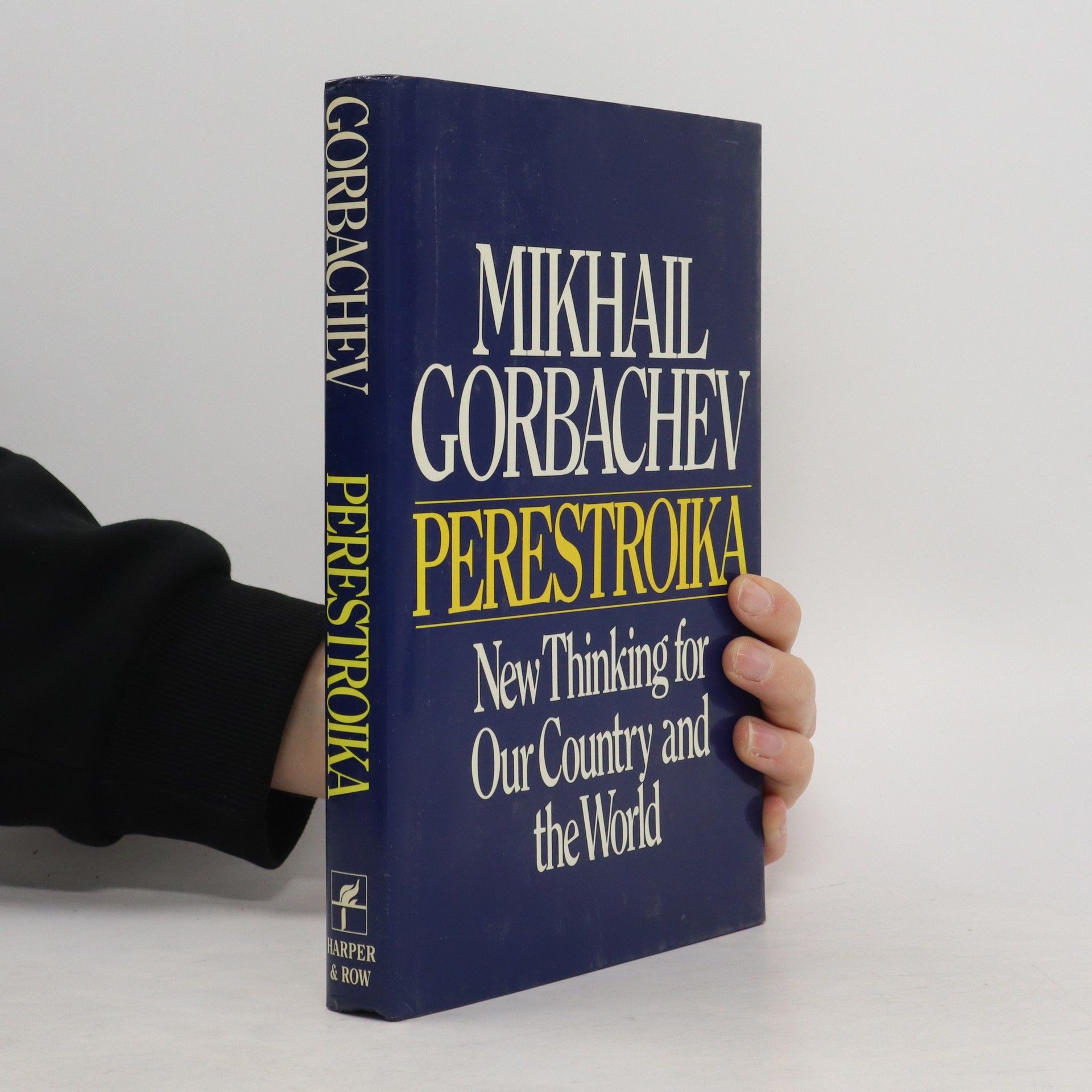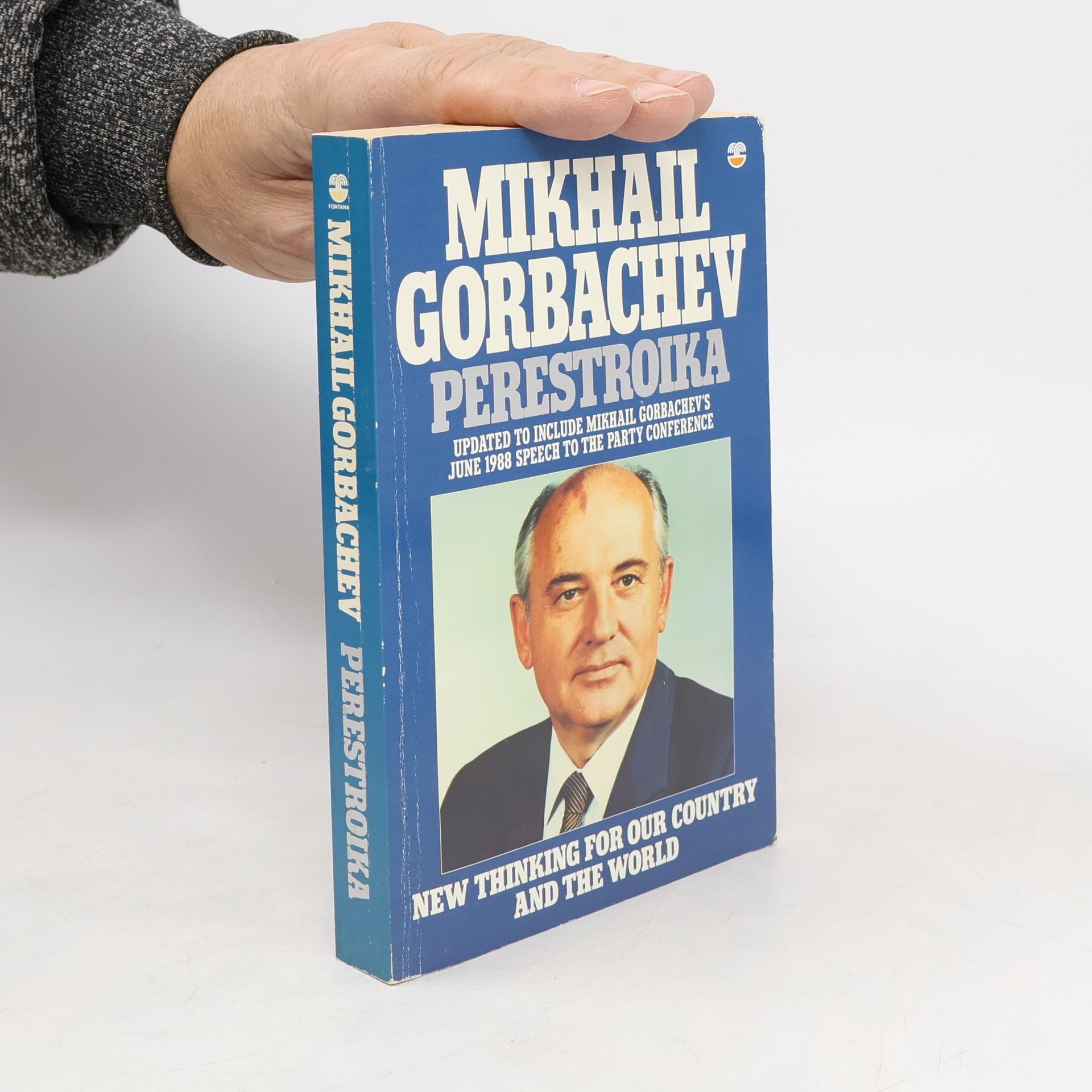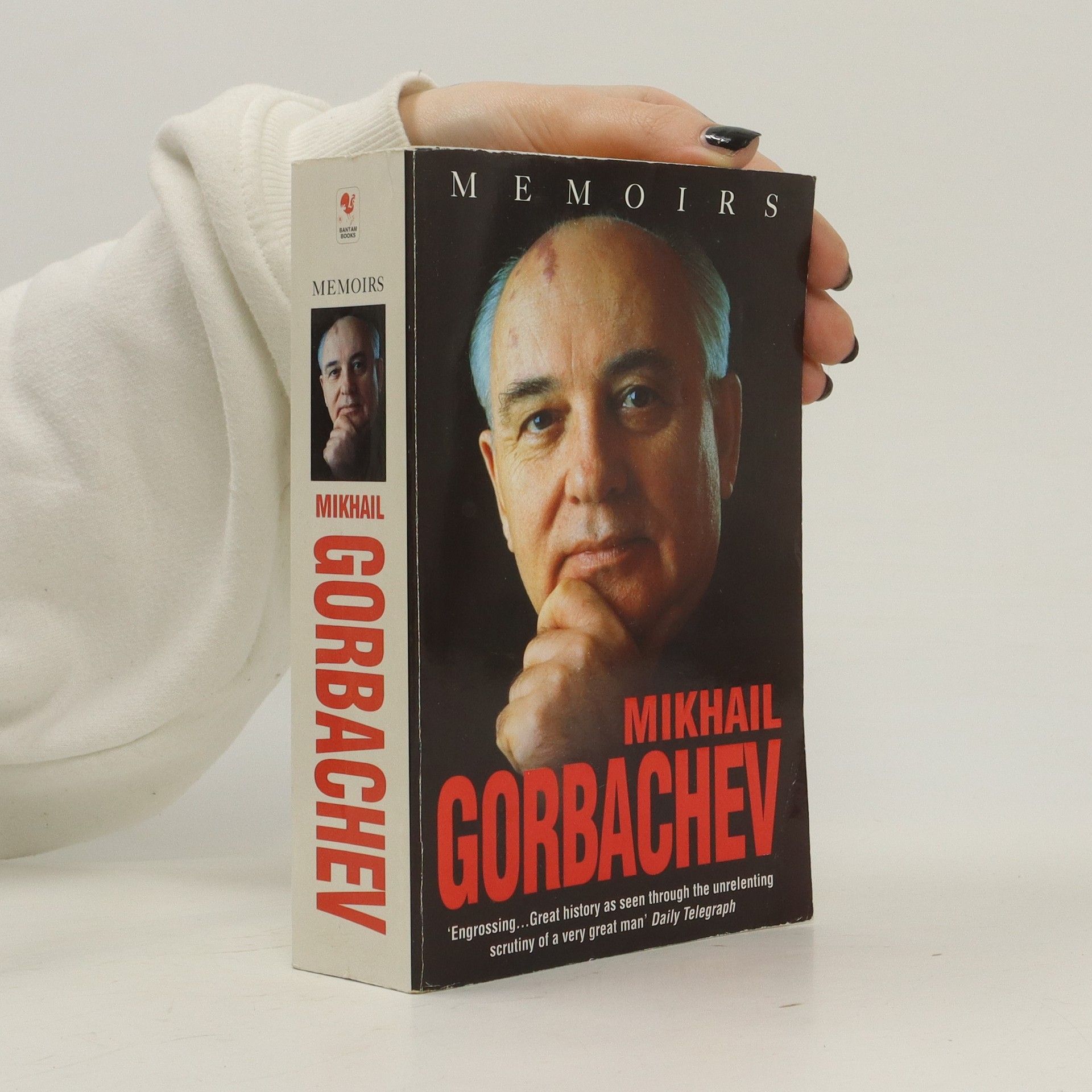What Is at Stake Now
- 140 pages
- 5 hours of reading
A major new statement on the key challenges of global politics by one of the greatest statesmen of our time--






A major new statement on the key challenges of global politics by one of the greatest statesmen of our time--
Mein Aufruf für Frieden und Freiheit
Michail Gorbatschow über die gefährliche Unordnung der Welt Dreißig Jahre nach dem Ende des Ost-West-Konflikts ist der Frieden in der Welt wieder in Gefahr. Der US-Präsident kündigt das Abrüstungsabkommen mit Russland, Europa zerfällt, China drängt nach vorn und eine Welle von Nationalisierung und Ideologisierung gefährdet die Freiheit und die Selbstbestimmung der Völker. Michail Gorbatschow, der letzte große Staatsmann der Revolution von 1989, warnt angesichts der gefährlichen Weltlage vor einem Krieg aller gegen alle. Er beschreibt die Unfähigkeit und den Unwillen der aktuellen politischen Führer, an internationalen Lösungen zu arbeiten. Er widmet sich den großen Herausforderungen unserer Zeit, etwa der Krise der Demokratien und dem Vormarsch von Populisten und Ideologen, und setzt auf Dialog und Verständigung. Nicht zuletzt widmet er sich Deutschland, dem er, dreißig Jahre nach dem Mauerfall, noch heute besonders verbunden ist.
Ein Appell von Michail Gorbatschow an die Welt
Michail Gorbatschow gehört zu den bedeutendsten politischen Persönlichkeiten des 20. Jahrhunderts. Sein Mut war es, der die damals größte Bedrohung der gesamten Menschheit überwunden hat: das atomare Wettrüsten und einen möglichen Atomkrieg in Europa. In den heutigen Zeiten neuer Feindbilder und Kriege brauchen wir vermittelnde und versöhnende Stimmen wie die des erfahrenen Realisten Michail Gorbatschow. Er fordert im Gespräch mit Franz Alt ein grundlegendes weltpolitisches Umdenken, bei dem Gewaltfreiheit in den internationalen Beziehungen an erster Stelle steht. Sein Appell ist ein Weckruf, von nationalstaatlichem Denken und Egoismus endlich Abschied zu nehmen und das »gemeinsame Haus Europa« zu bauen.
After years of rapprochement, the relationship between Russia and the West is more strained now than it has been in the past 25 years. Putin s motives, his reasons for seeking confrontation with the West, remain for many a mystery. Not for Mikhail Gorbachev.
Vzpomínková kniha bývalého sovětského prezidenta Michaila Gorbačova dokumentuje dobu jeho politických začátků i přelomová mezinárodní jednání. Gorbačov se rovněž věnuje soukromým záležitostem, vrací se do dětství, vzpomíná na rodiče i na manželku a uvádí řadu zajímavostí ze svého života.
Mein Leben
Die Autobiografie eines großen Staatsmanns und eine berührende Liebesgeschichte Michail Gorbatschow lässt sein Leben Revue passieren, erzählt von Politik, Macht und Zeitgeschichte, aber auch von seiner Frau Raissa, mit der er fast fünfzig Jahre seines Lebens zusammen war. Sie hatten sich während des Studiums in Moskau kennengelernt. Der Krebstod seiner Frau 1999 in Deutschland traf den einst mächtigsten Mann der Sowjetunion tief. In diesem Buch geht er unter anderem der Frage nach, ob er ihn hätte verhindern können. Flankiert werden seine Erinnerungen von Tagebuchaufzeichnungen, die kurz nach dem Tod seiner Frau entstanden.
Wie eine grüne Wirtschaft, neue Politik und ein höheres Bewusstsein zusammen wirken
Wachstum um jeden Preis ist der falsche Weg. Doch Politik und Wirtschaft fehlt der Mut zu einem fundamental neuen Lebensmodell, das wir so dringend brauchen. In Weltwende 2012 zeigt Ervin Laszlo, dass unsere Welt trotz der globalen Krisen zukunftsfähig ist, was er anhand von spirituellen Führern, Wissenschaftlern und visionären Wirtschaftsgrößen wie Albert Einstein, Mohammad Yunus, Václav Havel, Eckhart Tolle, Ken Wilber, David Korten und Paul Hawken erläutert. Ein grundlegender Wandel verlangt aber auch einen tief greifenden Bewusstseinswandel. Sogar die moderne Physik weiß bereits, dass wir tatsächlich alle miteinander und dem gesamten Kosmos verbunden sind. Laszlo führt in konkreten Schritten vor, wie unsere begrenzte Sichtweise abgelöst werden kann von einem höheren Bewusstsein, das unsere Welt grüner und unsere Gesellschaften zufriedener und harmonischer macht.
Autori diela - Michail Gorbačov (bývalý generálny tajomník komunistickej strany a posledný prezident ZSSR, laureát Nobelovej ceny mieru za diplomatické úsilie, ktoré viedlo k ukončeniu studenej vojny v r. 1990) a Daisaku Ikeda (budhistický filozof, duchovný vodca Sokka Gakkai budhistickej organizácie, ktorá má asi 12 miliónov stúpencov v 192 krajinách, autor viac než 80 publikácií, nositeľ Ceny mieru Organizácie spojených národov z r.1983), pochádzajúci z rôznych spoločenských kultúr - pravoslávia a budhizmu, profesionálny politik a náboženský filozof sa vo svojich rozhovoroch vyjadrujú k udalostiam 20. storočia a jeho morálnym odkazom.
"Mikhail Gorbachev and Daisaku Ikeda are contemporaries raised in different cultures: Gorbachev is a statesman whose origins are the Marx-inspired world of Communism, while Ikeda is a Buddhist inspired by the thirteenth century Japanese sage, Nichiren. Moral Lessons of the Twentieth Century emerged from a series of conversations between these two men. Together they explore their experiences of life amidst the turmoil of the twentieth century and together they search for a common ethical basis for future development. They conclude that values are born of culture and that peace, progress and social justice can only be achieved through sincere communication and cultural exchange. As the new century begins, they have sought to turn the spotlight on the challenges which face humanity. The book is a call for dialogue in pursuit of values that bridge culture and time."--BOOK JACKET